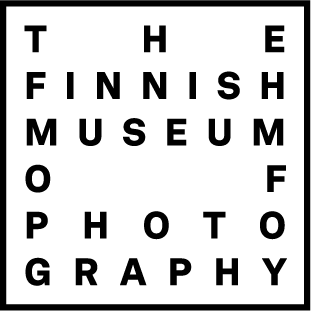The artist duo Hamm-Kamanger met in 1998 in a Helsinki kebab-pizzeria where they were both working. Alongside their work it occurred to them to carry out a joint art project, which was shown at Kunsthalle Helsinki in the year 2000. They have worked as a duo ever since.
Dzamil Kamanger’s Prison Sheet is an enlargement embroidered in Mouliné stranded cotton of a photograph taken by the Red Cross. This picture of Kamanger and his fellow prisoners in Iraq's, Al-Romadi's prison was sent to Kamanger’s relatives to show them he was alive. The work replicating the photograph has been embroidered, using a slow, laborious technique, with feelings that were not dealt with during his ten years in prison, feelings that this civilian prisoner of the Iraq-Iran War still carries with him.
Kamanger has staged performances in which he sewed Prison Sheet in front of the display windows of Europe’s designer stores. He says that Europe casts a spell with its affluence and luxury goods, but that the everyday life of a refugee is often an arduous slog to eke out even the most meagre living. Kamanger’s works bring together his personal experiences in his home country of Iran and later as a refugee in Finland to produce something positive, along with dreams of a better future.
Kalle Hamm’s 80 Comments on Freedom, as its name implies, consists of 80 comments that speak about the history and development of individual freedom and citizens’ rights, from the Enlightenment up to the present day. The artist questions how well equal rights between different groups have been applied in practice. For him, one thing that makes promoting rights less easy is the fact that capitalism turns the slogans of the Enlightenment into rhetoric. Economic thinking has also transformed the symbols of the Enlightenment into mass-produced goods, diverting people’s attention away from unfulfilled promises and towards consumerism.
The Finnish Museum of Photography
Project Space
The Cable Factory, The Cable Factory, Tallberginkatu 1 G, 00180 Helsinki


